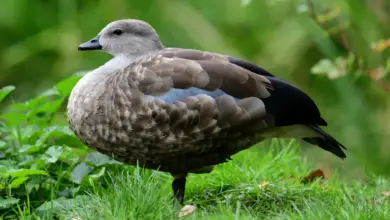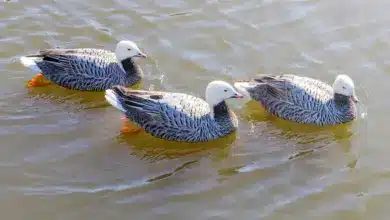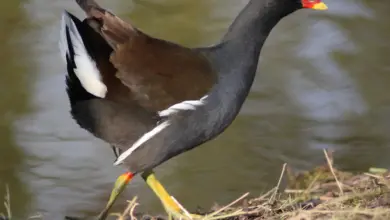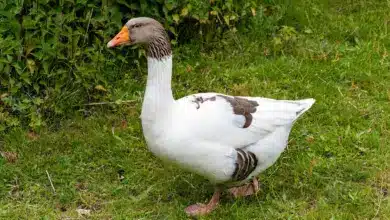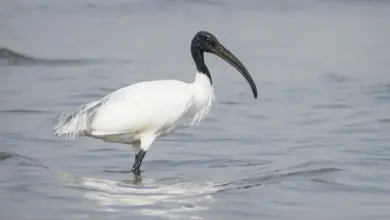Chinese Goose (Anser cygnoides) are domesticated geese that descended from the wild Swan Goose.
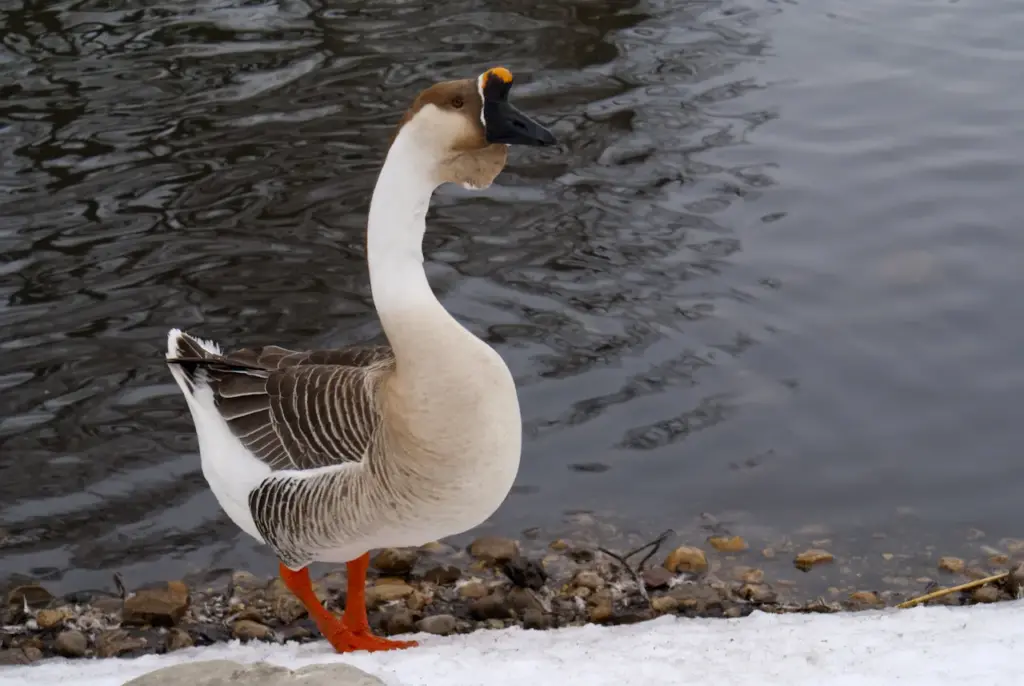
Description
These domesticated Chinese Geese have been bred for size and they are much larger size than their wild cousins.
Males may weigh between 11 – 22 lbs (5 – 10 kg) and females between 8 – 22 lbs (4 – 9 kg).
Both males and females often have a strongly developed basal knob on the upper side of the bill, although the knob is more prominent in males than in females.
This knob offers a way of accurately identifying the genders. Juveniles can also be sexed when they are 6 – 8 weeks old.
Chinese geese come in two varieties: a brown variety that is similar to the Swan Goose and a white phase.
Breeding / Nesting
Most breeding activity occurs between February and June. A Chinese Geese usually produces 50 – 60 eggs in one breeding season – with some exceptional hens laying as many as 100 eggs a season.
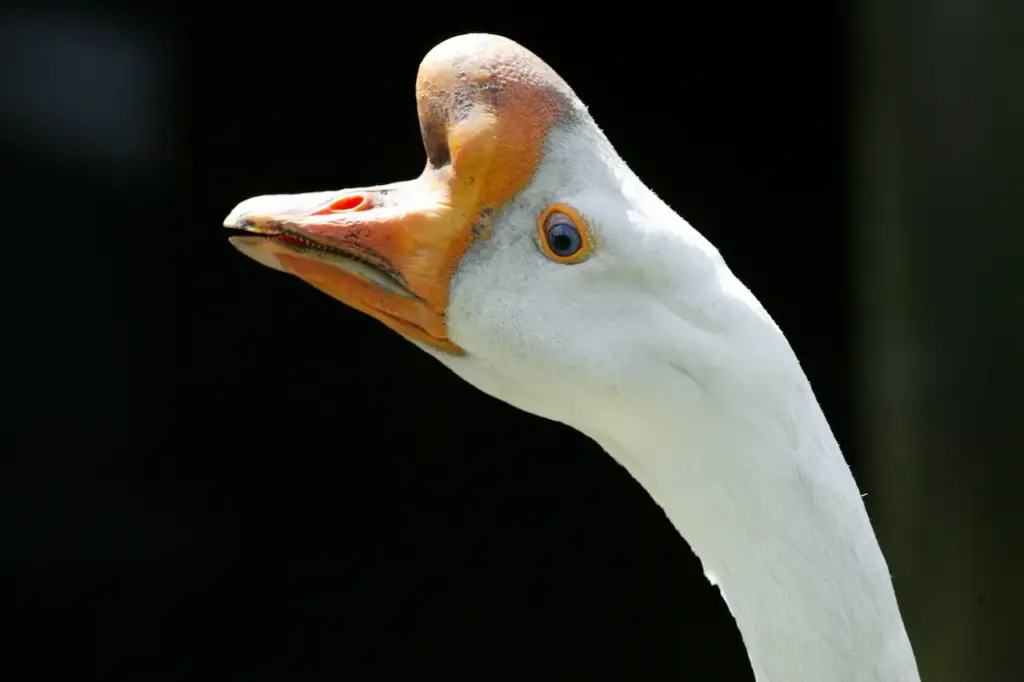
Diet / Feeding
Geese consume a wide variety of plant material, including grass, roots, shoots, leaves, stems, seedheads, and fruits of other herbaceous marsh vegetation, aquatic plants, and agricultural grain and potatoes (particularly in the winter)

